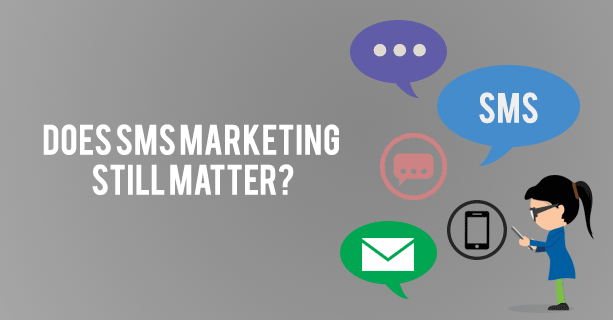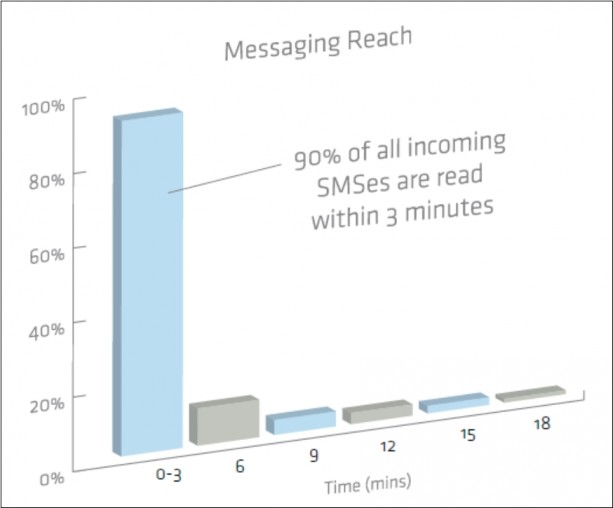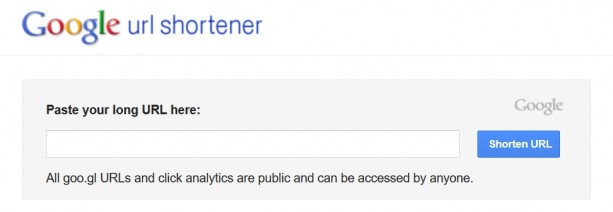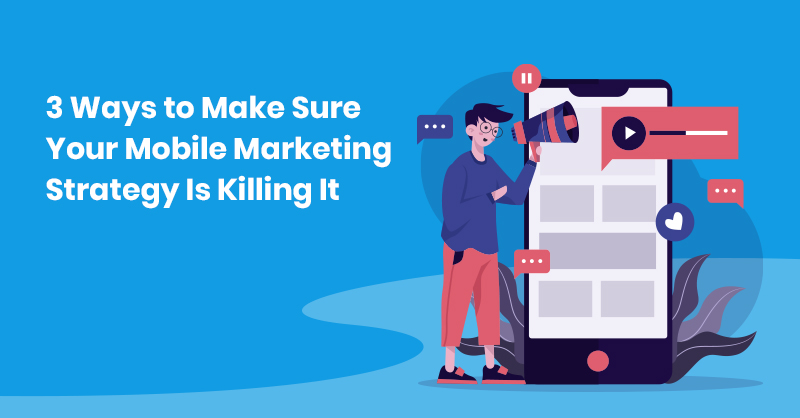Many consider SMS marketing as a relic of the past. In fact, many people consider SMS marketing as a form of spam that accomplishes few results for the amount of required effort.
Still, despite its reputation for being a marketing tactic of the past, businesses continue to use SMS marketing as a marketing strategy for their business.
With mobile marketing on the rise and the number of mobile device users, SMS marketing may be a powerful outlet for businesses to promote their company, services, and products.
So, what exactly is the potential of SMS marketing in 2015 and in which scenarios can it work?
The Present State of SMS
Recently, Open Market conducted a research which revealed that 6.1 billion people on earth use an SMS-capable handset. Given the fact that the world population is currently estimated to 7.1 billion, that’s an enormous potential audience.
When you take into consideration that recipients open 90 percent of all SMS messages within three minutes of receiving it, you start to understand how important people hold SMS as a communication medium.
Then why are so many companies abandoning SMS marketing and have given way to other means of marketing, such as emails and apps?
The fact that they can deliver higher quality and richer media experiences is probably half the answer. Perhaps the second half lies in the fact that SMS marketing does not produce results as easily as one might think.
To the contrary, SMS marketing campaigns can and do easily flop, especially when businesses do not first consider how to plan and execute them properly.
In 2016, SMS marketing stands a good chance of producing results in the following contexts:
1. As an addition to a business’s marketing toolbox
As an integral part of comprehensive SMS Marketing Solutions, businesses should view SMS marketing not as a standalone effort but as a synergistic component that complements other tools like landing pages, social media, and email marketing.
For example, you could use SMS to send users a link to your website or landing page that will give them a chance to interact with your company in all sorts of ways, from subscribing to your newsletter to becoming your follower on social networks or even downloading a piece of content and claiming their free coupon for your product or service.
2. When it’s used for communicating with interested parties
Sending unsolicited SMS messages to mobile users produces few tangible results and can land you in legal trouble. As of October 16, 2013, TCPA guidelines stipulate a fine of up to $1,500 for every message you send to SMS users without first receiving their written consent to receive them. Your company must have a compliant system in place to ensure that you have the right to send SMS to the numbers you have.
Even when marketing to a consenting audience, you must respect your recipients by minimizing the number of messages you send and getting straight to the point. Some people still have to pay for SMS messaging, so they will appreciate your responsible use of their money and time. Furthermore, messages need to address customers’ individual needs and engage them on a personal level. This can be achieved through proper segmentation and planning.
Also, avoid sending images through SMS. You want to send something quick and easy for them to read. Multimedia messages (MMS) may cost money for your customers and produce a negative results instead.
3. When you provide something valuable to prospects
Your value proposition to prospects needs to be relevant and promise to make a positive contribution to their lives. Well, how can you make sure this value proposition is recognized? It’s as much about the offer itself as it is about how you present it in terms of language and message structure.
Most mobile phones have SMS preview that shows only the first 30 to 60 characters. Whether you manage to successfully fit your value proposition into this limited number of characters is what will make or break your success. It’s what will determine whether your message is going to receive desired attention.
To add some extra value, include in your messages a link to your landing page or business website where prospects can get access to a piece of content they’re likely to be interested in. For example, a downloadable guide or access to video series.
Remember, URLs can take up a lot of characters, which is why it’s advisable to shorten them using Bitly or Google URL Shortener.
Which Businesses Can Benefit from SMS Marketing?
Like with any other form of marketing, SMS marketing does not provide a universal solution that works for every business. Before adding SMS to your marketing mix, you should definitely learn whether it can work for the kind of business you run. In general, SMS tactics work well for service providers and brick and mortar businesses. For example:
- Retailers can use SMS to send time-sensitive promotional offers, coupons (show SMS at the check-out to redeem the coupon) and loyalty program updates, as well as to promote upcoming sales;
- Restaurants and bars can use it to notify customers about food or drink specials, to promote pre-sale ticket opportunities or to request customer feedback;
- Hotels can attract visitors by sending SMS alerts about ongoing/upcoming events or they can use SMS messages to offer special deals to loyal customers;
- Beauty salons and health providers can use SMS as a means of getting in touch with clients, scheduling appointments, and sending reminders.
This is by no means a complete list, but it should give you some idea of how SMS can be put to use to benefit different sorts of businesses.
When it comes to SMS marketing, businesses are deeply divided. For some, SMS marketing died a long time ago. The others, however, see in it untapped marketing potential. One thing is definitely true: the success of SMS marketing hinges on its contextual use with other tools and its use in an appropriate business environment. When used with respect for user privacy and a desire to provide value, SMS marketing can support a business’s overall marketing efforts.










on
Even today, Bulk SMS marketing is a wonderful strategy to promote your business. As a result of the expansion of mobile phone users just all over the world, sending SMS to a legion of intended audiences is possible in a wink.
on
Great suggestions dear! SMS marketing is the powerful way to reach out your audience and to increase your sales. But we need to do it in appropriate way because using it incorrectly can harm our business reputation.
on
As a Smart phone user, SMS marketing promotions always get to delete and block buttons. Nevertheless, I could only be the 1% of the 7.1 billion potential consumers. This type of marketing strategy could win interested audience into buying the sales pitch right through. SMS marketing quick-and-easy drop on the lap business advertising, though intrusive and spammy in nature, could still be a winning marketing strategy. Everyone has got to earn his/her keep.
I’d still use the social media linking to my business with quality (in good taste) copywrite in openly promoting my business. It gives the people (audience) the choice to look into the services and goods I offer without having to feel violated of their right to privacy.
I still go through Web Directories, junk mails in the mail boxes, word-of-mouth (people promote you if you’re that good and trustworthy in every transaction), a Town Crier news and social community…
on
Regarding SMS, of course everyone likes it, because they are read. HOWEVER, I feel like people guard their cell phone with their life, this includes the ability to receive texts. If you are looking for a URL shortener, however, I would recommend that you go with an open source or paid solution , so you can have control over the analytics.
on
Great suggestion, Brody. Thanks!
I agree with you when you say people are often overprotective about their phones. Probably because it’s basically the only channel where users are still in charge of what they receive, plus the law is on their side. I think this tendency really emphasizes the importance of getting the value proposition right.